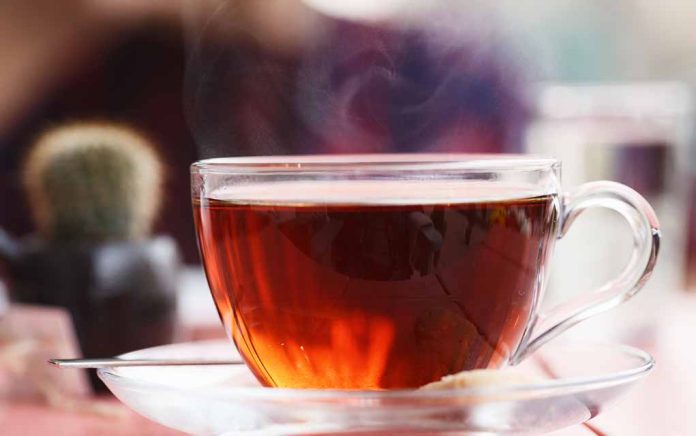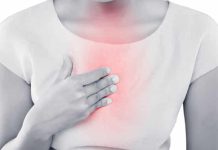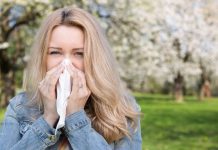
While tea is known to have quite a number of health benefits, many of us were shocked to learn that drinking the piping hot brew may significantly increase our risks of developing esophageal cancer by up to 90 percent. Are you one of the thousands of people who like to enjoy a cup or two of hot tea throughout the course of each day? Is that a risk you’re willing to take?
Risk Factors Associated with Esophageal Cancer
Before we dive into a study of hot tea, let’s take a closer look at some of the risk factors known to contribute to the development of esophageal cancer. It’s important to remember that while risk factors can be influential, they do not, in and of themselves, actually cause cancer. It is certainly possible for people with no risk factors at all to develop any form of cancer, just as those with risk factors may never fall ill.
Signs and Symptoms of Esophageal Cancer:
|
When it comes to esophageal cancer, some of the most widely recognized risk factors include:
- Age. The majority of cases are diagnosed when patients are between the ages of 45 and 70.
- Gender. Males tend to develop the condition more often than women.
- Race. Those of African American descent are more likely to develop squamous cancer cells than Caucasians.
- Alcohol and tobacco abuse. The type of tobacco (cigarettes, chewing tobacco, etc.) does not matter. The risk is even higher if a person abuses both substances.
- Human papillomavirus (HPV). There are different strains of HPV, so it is possible for people to develop squamous cell cancers unrelated to reproductive organs.
- Poor nutrition. Diets lacking in the nutrients found in fresh fruits and vegetables can increase a person’s risk.
- Obesity. People with high levels of body fat are more likely to develop adenocarcinoma of the esophagus.
- Damage to the esophagus. Anything that causes damage to the lining of the esophagus can increase the risk of a person developing adenocarcinoma. Common conditions to consider include gastroesophageal reflux disease (GERD), Barrett’s esophagus, and other forms of chronic heartburn.
The Tea Studies (and the Problem)
That last risk factor about damage to the esophagus is really where concerns about hot tea come into play. According to a study published in the International Journal of Cancer, people who drink over 700 ml (or 24 ounces) of tea hotter than 60 degrees Celsius, or 140 degrees Fahrenheit, are significantly increasing their risk of developing esophageal cancer. Why? The constant exposure to hot tea may just be damaging the lining of the esophagus. This activates the squamous cells that naturally exist in the lining, allowing them to turn into glandular tissue, tumors, and eventually into a squamous cell carcinoma.
While there have been previous studies proving a link between hot tea and cancer, the one published in the International Journal of Cancer is the first to focus in on an exact temperature. The study focused on approximately 50,000 people from the Golestan Province in Iran — an area with a notably high rate of esophageal cancer.
It’s important to note that people in countries like Iran, South America, Turkey and Russia drink tea far more often, and at hotter temperatures, than the average American. Tea is a very large part of the cultures of these regions and is kept hot for consumption throughout the day. The lack of alcohol and tobacco abuse in the province does allow researchers to point toward tea, as opposed to other vices when looking for the cause of the high cancer diagnosis rate.
The biggest problem we have with the study is the fact that it’s incredibly difficult to track 50,000 people and measure the temperature of the tea they’re drinking daily. Study participants were more or less asked to tell researchers how hot they prefer to drink their water, a process that often produces biased answers. Though they did create a method for determining a person’s average drinking temperature by inviting them in for an initial interview. During the interview, guests were given a cup of tea initially heated to 75 degrees Celsius, after which they were asked to tell them if that was the temperature they usually liked to drink their tea. If they said they preferred it cooler, the researchers would drop the temperature 5 degrees and try again.
It’s Not Just Tea
Theoretically, then, it’s not the actual tea leaves that are the problem. It’s merely the temperature of the beverage itself. That ultimately means any hot beverage you consume on a regular basis could be increasing your risk, whether it be tea, coffee, cocoa or something else.
But why? According to the International Journal of Cancer, high levels of heat can cause injury to the lining of the esophagus, otherwise known as the mucosa. In theory, even hot foods swallowed before cooling should cause damage. Researchers found that though food and beverages drop in temperature within the mouth, people were more likely to allow food to cool longer, while the temperature relative to the size of a beverage sip was far more likely to cause damage in the esophagus. The higher the temperature, and the larger the sip, the more likely it is to cause damage.
Reducing Your Risk
While there is nothing you can do to truly prevent cancer, you can significantly reduce your risk factors by paying attention to your personal lifestyle choices. When thinking about esophageal cancer, consider:
- Maintaining a healthy weight to reduce your body fat percentage.
- Cutting back on or quitting the consumption of alcohol.
- Quitting smoking.
- Talking to your doctor about properly treating heartburn and/or GERD.
- Allowing your beverages to cool below 60 degrees Celsius or 140 degrees Fahrenheit before consuming.
Summing It Up
Tea plays a huge role in many cultures and is a staple in millions of households. There is no reason to run to the kitchen and toss all of your blends.
- While it is more common in other areas of the world, esophageal cancer makes up approximately one percent of annual cancer diagnoses.
- Esophageal cancer risk rates in the United States are approximately 1 in 455 for women.
- Your risk of developing esophageal cancer is higher if more than one risk factor applies to your lifestyle — for example, drinking tea and smoking.
- While beverage temperature may impact esophageal cancer risk, some tea varieties (like green tea) are known for reducing a person’s risk overall.
- Black tea has been shown to have a positive impact on cardiovascular health.
While there will likely be more than 17,650 new cases of esophageal cancer in the United States this year alone, it’s important to be reasonable when assessing your personal situation. It’s not the tea itself that is a danger, but the temperature. Let your tea cool longer, or switch to drinking it cold — but don’t worry about giving it up altogether. Talk to your healthcare provider if you are concerned about any symptoms you are experiencing; but in the meantime, enjoy your tea.
Copyright 2021, HealthyResearch.com
















